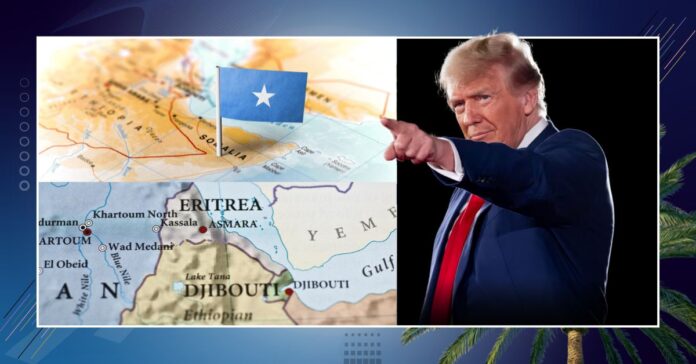A coalition of self-proclaimed experts on the Horn of Africa is currently lobbying the new Trump administration to formally recognize Somaliland and support regime change in Eritrea. These initiatives are championed and propagated by individuals whose primary objective seems to be fostering instability under the pretext of promoting freedom and self-determination for local populations. However, their deeper motivations are evident: they aim to establish dominance over strategically significant regions and exploit the natural resources within these nations.
Somaliland
The region serves as a crucial corridor for international trade and maritime navigation. Amid ongoing geopolitical tensions between Somalia and Ethiopia, there has been significant discourse surrounding the implications of U.S. recognition of Somaliland, particularly in light of strategic military interests in the area. This includes Israel’s establishment of a military base to monitor Iranian activities and its proxies in Yemen.
Proponents argue that U.S. acknowledgment of Somaliland’s independence could be pivotal in curbing Iranian influence in the Horn of Africa. Additionally, it is claimed that such recognition could yield strategic advantages for Ethiopia. However, advocates of these positions often overlook the potential ramifications on regional stability and security dynamics.
Regime Changes in Eritrea
In recent weeks, individuals such as Michael Rubin and Martin Plaut, alongside other proponents of interventionist policies, have demonstrated a concerted effort to advocate for regime change in Eritrea. This campaign includes facilitating the establishment of a government-in-exile that lacks recognition or legitimacy among the Eritrean populace. Furthermore, it provides support to various political opposition groups, some of which have historically called for the territorial disintegration of Eritrea and have aligned themselves with adversarial factions in neighboring countries intent on undermining Eritrean sovereignty.
Certain oppositional factions are effectively instruments used to destabilize and dismantle Eritrea, serving the interests of external actors aiming to erode national unity and undermine Eritrean identity.
One might question the rationale behind their aggressive advocacy for such inherently destructive and intolerable actions. The answer lies in their disregard for the associated costs and ramifications. Their primary concern is narrowly aligned with their own vested interests.
How Should We Confront Them?
International legal frameworks may pose challenges to the Trump administration’s potential recognition of Somaliland. However, historically, U.S. leadership has often prioritized national interests over adherence to international legal standards.
It is crucial for the people of the region to remain critically aware of the narratives and disinformation propagated by those seeking to sow discord among nations, as these tactics often create a conducive environment for exploitation.
While significant reform and transformation of socio-political landscapes are needed across all countries in the region, these changes must originate from the people themselves. Reform processes should be rooted in local communities and led by the citizenry, ensuring ownership and sustainable outcomes. External influences, often motivated by self-serving interests and indifferent to the long-term welfare of these societies, must not dictate the path to reform. Instead, the power to shape these changes should remain firmly in the hands of local stakeholders.

